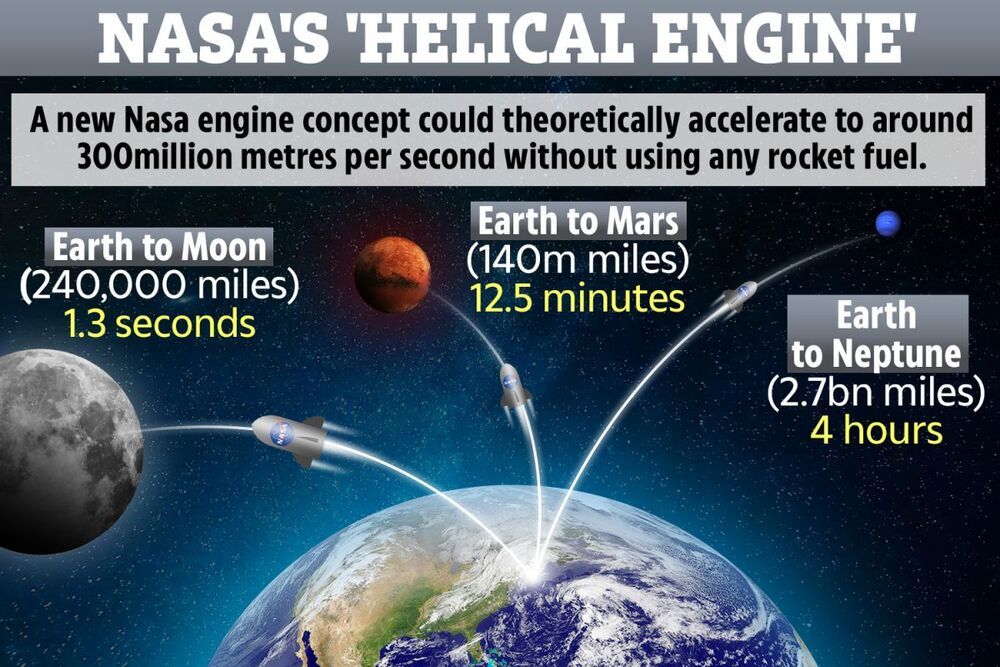SpaceX just hit the FCC’s goal for low internet lag. Next step: 1 gigabit internet speeds.



Since OpenAI first described its new AI language-generating system called GPT-3 in May, hundreds of media outlets (including MIT Technology Review) have written about the system and its capabilities. Twitter has been abuzz about its power and potential. The New York Times published an op-ed about it. Later this year, OpenAI will begin charging companies for access to GPT-3, hoping that its system can soon power a wide variety of AI products and services.
Earlier this year, the independent research organisation of which I am the Director, London-based Ada Lovelace Institute, hosted a panel at the world’s largest AI conference, CogX, called The Ethics Panel to End All Ethics Panels. The title referenced both a tongue-in-cheek effort at self-promotion, and a very real need to put to bed the seemingly endless offering of panels, think-pieces, and government reports preoccupied with ruminating on the abstract ethical questions posed by AI and new data-driven technologies. We had grown impatient with conceptual debates and high-level principles.
And we were not alone. 2020 has seen the emergence of a new wave of ethical AI – one focused on the tough questions of power, equity, and justice that underpin emerging technologies, and directed at bringing about actionable change. It supersedes the two waves that came before it: the first wave, defined by principles and dominated by philosophers, and the second wave, led by computer scientists and geared towards technical fixes. Third-wave ethical AI has seen a Dutch Court shut down an algorithmic fraud detection system, students in the UK take to the streets to protest against algorithmically-decided exam results, and US companies voluntarily restrict their sales of facial recognition technology. It is taking us beyond the principled and the technical, to practical mechanisms for rectifying power imbalances and achieving individual and societal justice.
Between 2016 and 2019, 74 sets of ethical principles or guidelines for AI were published. This was the first wave of ethical AI, in which we had just begun to understand the potential risks and threats of rapidly advancing machine learning and AI capabilities and were casting around for ways to contain them. In 2016, AlphaGo had just beaten Lee Sedol, promoting serious consideration of the likelihood that general AI was within reach. And algorithmically-curated chaos on the world’s duopolistic platforms, Google and Facebook, had surrounded the two major political earthquakes of the year – Brexit, and Trump’s election.

Filecoin, a blockchain-based decentralized storage project, is officially launching its testnet- Space Race to test out the network before the mainnet launch.
As promised, Filecoin will start its testnet launching competition. It encourages global miners for the next three weeks to be competing for up to four million Filecoin in prizes to onboard as much storage space to the network as possible, says the report. The contest begins on August 24 at 10 pm UTC.
The top 100 miners globally, and the top 50 miners from each continent, will use the earned Filecoin rewards to jump-start their mainnet mining efforts based on how much storage they and the network achieve during the competition. People can also track their progress on the testnet main website.
In addition to the onboarding storage capacity competition, the 20 largest block reward winners will split a prize of an additional 100,000 FIL proportionally based on how much block reward they win. More than 240 miners from six continents are preparing to participate in the competition in the past month, says Filecoin.
Molly Mackinlay, IPFS Project Lead, said, “Filecoin would be nothing without its robust and passionate community.”
Filecoin’s project raised $257 million during its 2017 initial coin offering and it’s been developing ever since.
If you’re a fan of science fiction, chances are you encountered a few franchises where humanity has spread throughout the known Universe. The ships that allow them to do this, maybe they use a warp drive, maybe they “fold space,” maybe have a faster-than-light (FTL) or “jump” drive.
It’s a cool idea, the thought of “going interstellar!” Unfortunately, the immutable laws of physics tell us that this is simply not possible.
However, the physics that govern our Universe do allow for travel that is close to the speed of light, even though getting to that speed would require a tremendous amount of energy.

Since OpenAI first described its new AI language-generating system called GPT-3 in May, hundreds of media outlets (including MIT Technology Review) have written about the system and its capabilities. Twitter has been abuzz about its power and potential. The New York Times published an op-ed about it. Later this year, OpenAI will begin charging companies for access to GPT-3, hoping that its system can soon power a wide variety of AI products and services.
Is GPT-3 an important step toward artificial general intelligence—the kind that would allow a machine to reason broadly in a manner similar to humans without having to train for every specific task it encounters? OpenAI’s technical paper is fairly reserved on this larger question, but to many, the sheer fluency of the system feels as though it might be a significant advance.
We doubt it. At first glance, GPT-3 seems to have an impressive ability to produce human-like text. And we don’t doubt that it can used to produce entertaining surrealist fiction; other commercial applications may emerge as well. But accuracy is not its strong point. If you dig deeper, you discover that something’s amiss: although its output is grammatical, and even impressively idiomatic, its comprehension of the world is often seriously off, which means you can never really trust what it says.

Controlling temperature is crucial for the functioning of electronic devices. It’s even more so for highly complex quantum computers that rely on the ability to control quantum bits (also called qubits) in order to achieve processing capabilities far above the most powerful classical computer.
For a quantum computer to maintain its prowess, it must be cooled to a temperature close to absolute zero (−273.15oC) to keep the qubits in a state of coherence. However, keeping a quantum computer’s core temperature near absolute zero is not a simple feat and poses a major roadblock to the advancement of quantum computing. Often quantum computer producers keep the machines cool by using liquid helium as a refrigerant delivered in multiple stages. Nonetheless, this system is cumbersome and elaborate, and is not user-friendly.
The CERN Control Centre (CCC) is abuzz once again. The second long shutdown (LS2) has come to an end for CERN’s newest accelerator – Linac 4 – and the accelerator complex’s slow awakening from a two-year repair-and-recuperation hibernation has begun. The three-week machine-development run until mid-August saw low-energy beams of negative hydrogen ions (H−) fly through the first part of the accelerator for the first time since it was connected to the PS Booster. On August 20, the first beams at the nominal energy of 160 MeV were accelerated through the entire machine and into a dedicated beam dump located at the end of the linac. Over the coming months, the brand-new accelerator will finish being commissioned and will be made ready to deliver various beams to the PS Booster in December.
CERN is famous for its circular accelerators, in particular the 27-kilometer-circumference Large Hadron Collider. But the protons that circulate in these bigger machines first undergo acceleration in a humble and relatively small linear accelerator, or linac. In 2018, Linac 2, which had fed protons to CERN’s accelerator complex since 1978, was finally retired, with the 86-meter-long Linac 4 ready to take its place. But a new machine comes with new challenges for the team operating it.
The machine-development phase from late July was handled by the Accelerators and Beam Physics group (ABP) team responsible for the proton sources, who previously also ran the Linac 2 operations. “ABP made sure that we could send beam through the first structure in Linac 4, the so-called radio-frequency quadrupole or RFQ, with low beam losses,” notes Bettina Mikulec, who is leading the team from the Operations group (OP) who are responsible not only for Linac 4 but for the PS Booster as well. Over the three weeks, ABP also worked on optimizing the proton source and realigning it to get a better angle for the particles entering the RFQ. ABP then handed over the accelerator for commissioning to the team from OP.

O,.o earth to Mars 12.5 minutes.
A NASA scientist has cooked up plans for a bonkers new rocket engine that can reach close to the speed of light – without using any fuel.
Travelling at such speeds, the theoretical machine could carry astronauts to Mars in less than 13 minutes, or to the Moon in just over a second.
However, the real purpose of the so-called “helical engine” would be to travel to distant stars far quicker than any existing tech, according to NASA engineer Dr David Burns.

Summary: Researchers explore the close relationship between depression and pain. For some people, unexplained symptoms of pain, such as back or headaches, could be an early indicator of depression before mood changes occur.
Source: Mayo Clinic
Pain and depression are closely related. Depression can cause pain – and pain can cause depression. Sometimes pain and depression create a vicious cycle in which pain worsens symptoms of depression, and then the resulting depression worsens feelings of pain.